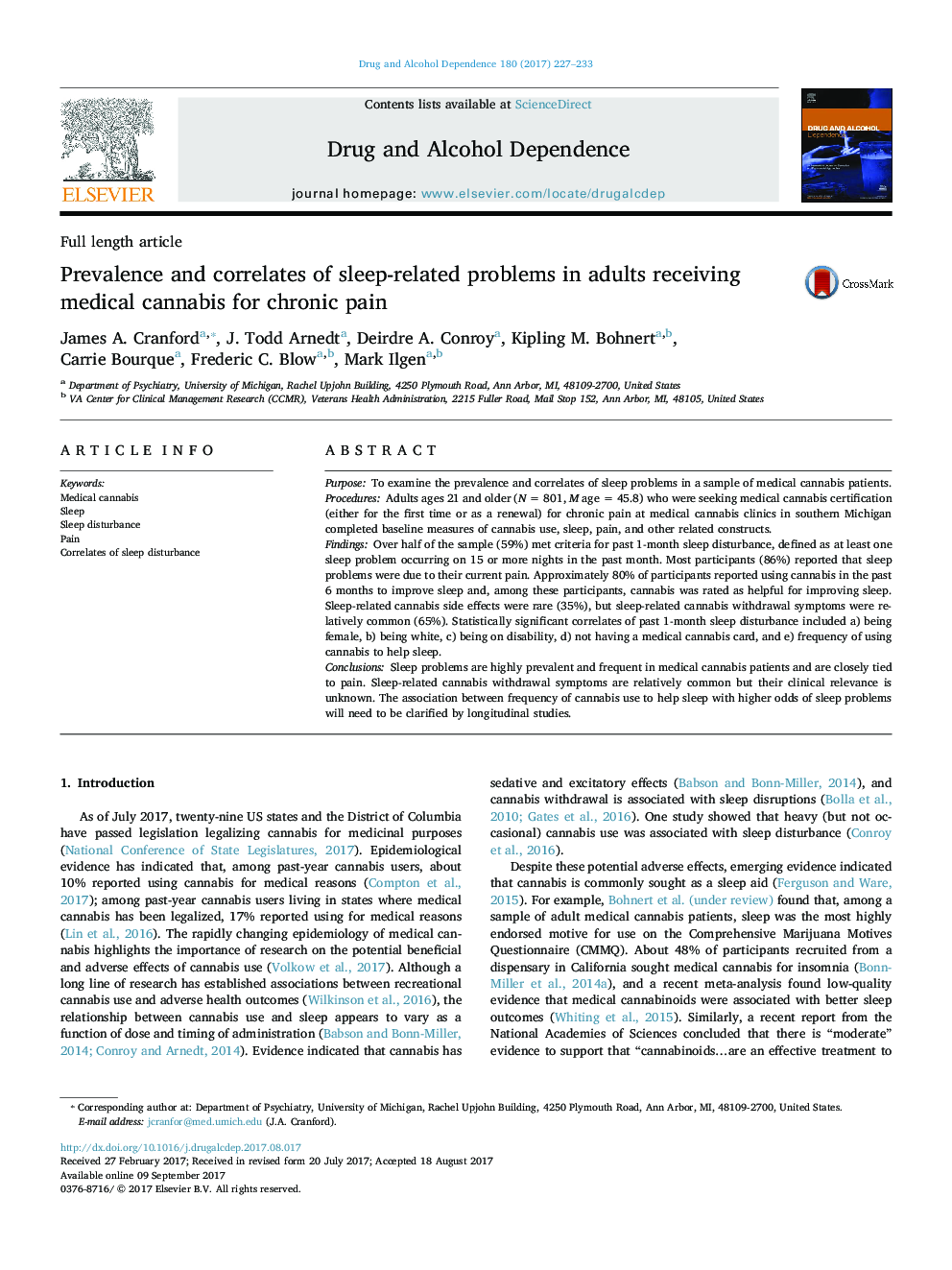| Article ID | Journal | Published Year | Pages | File Type |
|---|---|---|---|---|
| 5119862 | Drug and Alcohol Dependence | 2017 | 7 Pages |
â¢More than half of medical cannabis patients met criteria for sleep disturbance.â¢Most participants reported that sleep problems were due to their current pain.â¢80% of participants used cannabis in the past 6 months to improve sleep.â¢Sleep-related cannabis withdrawal symptoms were relatively common (65%).â¢Disability status and using cannabis to help sleep were related to sleep problems.
PurposeTo examine the prevalence and correlates of sleep problems in a sample of medical cannabis patients.ProceduresAdults ages 21 and older (N = 801, M age = 45.8) who were seeking medical cannabis certification (either for the first time or as a renewal) for chronic pain at medical cannabis clinics in southern Michigan completed baseline measures of cannabis use, sleep, pain, and other related constructs.FindingsOver half of the sample (59%) met criteria for past 1-month sleep disturbance, defined as at least one sleep problem occurring on 15 or more nights in the past month. Most participants (86%) reported that sleep problems were due to their current pain. Approximately 80% of participants reported using cannabis in the past 6 months to improve sleep and, among these participants, cannabis was rated as helpful for improving sleep. Sleep-related cannabis side effects were rare (35%), but sleep-related cannabis withdrawal symptoms were relatively common (65%). Statistically significant correlates of past 1-month sleep disturbance included a) being female, b) being white, c) being on disability, d) not having a medical cannabis card, and e) frequency of using cannabis to help sleep.ConclusionsSleep problems are highly prevalent and frequent in medical cannabis patients and are closely tied to pain. Sleep-related cannabis withdrawal symptoms are relatively common but their clinical relevance is unknown. The association between frequency of cannabis use to help sleep with higher odds of sleep problems will need to be clarified by longitudinal studies.
